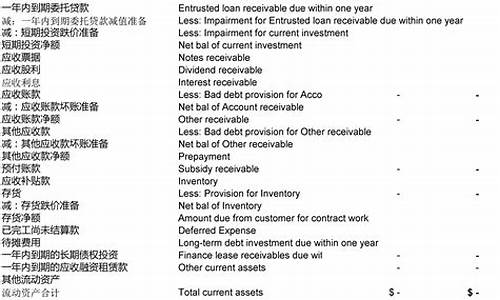Introduction
Ensuring the accuracy of translated financial reports is crucial for businesses operating internationally. Inaccurate translations can lead to misinterpretation of financial data, resulting in erroneous decision-making and potential legal implications. This article explores key strategies to ensure the accuracy of English financial report translations, covering various aspects from linguistic proficiency to cultural nuances.
Key Strategies for Accurate Translation

1. Linguistic Proficiency: Employ translators with expertise in both financial terminology and the target language. They should possess a strong understanding of accounting principles to accurately convey financial concepts.
2. Contextual Understanding: Translators must grasp the context of the financial report, including industry-specific jargon and regulatory requirements. This ensures the translation aligns with the intended meaning and compliance standards.
3. Quality Assurance Measures: Implement rigorous quality assurance processes, such as proofreading by native speakers and comprehensive editing. Consistency checks should be performed to maintain uniformity throughout the translated document.
Addressing Cultural Nuances
1. Cultural Sensitivity: Recognize cultural differences that may impact the interpretation of financial information. Certain terms or symbols may carry different meanings in different cultures, requiring careful consideration during translation.
2. Local Adaptation: Adapt the translation to resonate with the target audience's cultural preferences and business practices. This may involve modifying formats, currency symbols, or presentation styles to enhance comprehension and relevance.
3. Consultation with Experts: Seek input from local financial experts or consultants familiar with the target market. Their insights can provide valuable guidance on linguistic nuances and cultural sensitivities, ensuring the translated report resonates effectively.
Conclusion
Accurate translation of English financial reports is essential for facilitating global business operations and fostering trust among stakeholders. By prioritizing linguistic proficiency, contextual understanding, and cultural sensitivity, organizations can mitigate the risk of misinterpretation and ensure the integrity of financial information across language barriers. Implementing robust quality assurance measures and leveraging expertise in cultural adaptation further enhances the accuracy and relevance of translated financial reports, empowering businesses to make informed decisions in international markets.
- 上一篇:學(xué)術(shù)翻譯專業(yè)發(fā)展的未來趨勢(學(xué)術(shù)翻譯專業(yè)發(fā)展的未來趨勢有哪些)
- 下一篇:解鎖日語世界:高效翻譯服務(wù)助您暢游東方文化(日語解碼)



